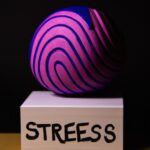Introduction to Self-Awareness and Personal Growth
Self-awareness is the key to unlocking our personal growth. It is the foundation of understanding ourselves, our strengths, weaknesses, and all the nuances that come with who we are. Self-awareness allows us to gain insight into why we think the way we do, why we act the way we do, and how we can make changes to improve ourselves. This guide will discuss the power and importance of self-awareness for personal growth, and provide practical tips and advice for becoming more self-aware.
What is Self-Awareness?
Self-awareness is the ability to identify and understand our own thoughts, feelings, and behaviors. It is knowing who we are, understanding our strengths and weaknesses, and being aware of how we are perceived by others.
Having self-awareness is critical for personal growth. It allows us to learn from our successes and failures, and to shape our future decisions more effectively. It also gives us insight into areas we can improve on, so that we can develop better habits and achieve our goals.
Self-awareness can help us to become better leaders, communicators, and problem solvers. Knowing ourselves allows us to have a deeper understanding of how we interact with the world around us, and how our choices affect those around us. In short, it enables us to take control of our lives and truly thrive.
Benefits of Self-Awareness
Being self-aware is one of the most powerful tools to promote personal growth. It gives you the ability to see your actions and reactions from an outside perspective, enabling you to make more mindful choices. Self-awareness helps us take a step back and examine our thought process, behaviour, motivations, and feelings.
Being self-aware has numerous benefits, some of which include the following:
- Improved Management of Emotions – Self-awareness can help us recognize our own emotions and better understand how they affect our behaviour. With this insight, we can devote more effort to managing our emotions to ensure we act in a healthy and productive manner.
- Greater Sense of Purpose – By recognizing our thoughts, feelings, and behaviours, we can get a better understanding of who we are and what motivates us. This knowledge will give us a greater sense of purpose and insight into how to direct our lives.
- Better Communication – Being aware of our own communication style and the way we come across to others can be extremely beneficial. We can also be more mindful of the messages we send while listening more actively to those around us.
- Enhanced Decision Making – By taking a more detached view of our decisions, self-awareness can help us identify our biases and challenge our assumptions. We can assess our strengths, weaknesses, and knowledge more accurately, making it easier to come to an informed decision.
Self-awareness is critical to personal growth and can have profoundly positive impacts on our life. The more we know about ourselves, the better equipped we are to navigate our lives effectively.
Awareness of Strengths
In order to grow and take control of your life, it is important to focus on your personal strengths. Self-assessment is the key to becoming more aware of these valuable qualities that you possess. While looking at your weaknesses can be important, analyzing areas in which you already excel will help you to remain focused and positive.
Self-awareness should not stop with just an assessment of your strengths. In fact, it’s even more important to take the time to reflect on them. Take a mental break to list your personal strengths such as self-motivation, leadership, creativity, problem-solving skills, empathy, and so forth. This exercise will help you internalize your strengths and show you just how much talent and potential you have.
By recognizing your strengths, you can also identify opportunities for growth. Perhaps you have most of the skills necessary for a new role or project, but lack a certain proficiency or experience. With targeted learning and effort, you can make moves to acquire those new skills while still capitalizing on the abilities you already possess.
Your strengths are yours for a reason – they are unique to you! Embrace them and use this awareness to make positive changes in your life. Self-assessment and reflection are invaluable tools to help you become more aware of your strengths and unlock your inner potential.
Awareness of Weaknesses
While being aware of our strengths is essential to personal growth, understanding our weaknesses is equally important. Though it may be a difficult subject to tackle, analyzing our weaknesses can help us make small changes that can have a huge impact on our lives.
The first step in becoming aware of our weaknesses is to identify them. We need to be honest with ourselves and take an honest look at what areas we may need to work on. This can include physical attributes, our emotional state, or how we respond to certain situations. Taking inventory of all aspects of our lives can be a humbling experience, but it’s the only way to truly understand what needs to be changed.
Once our weaknesses are identified, we need to take action to improve those areas. This may mean taking steps to strengthen our physical health, getting emotional counseling to deal with mental health issues, or learning new skills to address any professional challenges. It’s important to remember that small changes can have a big impact, so start with achievable goals and build from there.
Becoming aware of our weaknesses can also help us understand how our actions affect others. This insight can help us alter our behavior in order to better connect with those around us and treat people with more respect. It can also give us the confidence to take risks and push ourselves out of our comfort zones, taking us even closer to our goals.
Understanding our weaknesses is a key component of personal growth. It requires us to be honest and humble, but it can open up a world of new opportunities for growth. By taking steps to identify our weaknesses and make small changes, we can make big strides towards achieving our goals.
Ways to Become More Self-Aware
Self-awareness is an incredibly powerful tool that can help you take control of your life and move forward in achieving your goals. There are many steps you can take to become more aware of yourself and your actions. Here are some practical techniques you can start using today:
- Spend time alone in reflection – Find a comfortable spot and spend a few minutes each day reflecting on your thoughts and feelings. This can be a great way to get to know yourself better.
- Keep a journal – Writing down your thoughts and feelings is a great way to gain insight into how you think and act. Keeping track of your progress can also be a great motivator.
- Surround yourself with positive people – Surrounding yourself with friends and family who have healthy outlooks on life can inspire you and help you stay on track.
- Identify your triggers – Identifying the situations or experiences that make you angry, frustrated, anxious, etc. can help you to avoid them in the future.
- Meditate or practice yoga – Meditation and yoga can help clear your mind and relax your body. Focusing on your breath and being present in the moment can help you become more mindful of yourself.
- Monitor your self-talk – Pay attention to the conversations you have with yourself, and challenge any negative thoughts or ideas that come up. Be kind to yourself and focus on the positive.
Using a combination of these techniques can help you become more aware of yourself and your actions, and lead to a greater sense of personal growth.
Practice Self-Compassion
We all make mistakes and at times life can be hard. It is important to recognize our failures and mistakes, but it is equally important to forgive ourselves and focus on our future development. Practicing self-compassion can help us move forward and live a happier life.
Self-compassion has three main aspects: self-kindness, common humanity, and mindfulness. Self-kindness means being gentle with ourselves and having an understanding attitude. Common humanity involves recognizing the shared experience of imperfection and failure that all humans share. Mindfulness is understanding that we are feeling our emotions and being aware of them without judgment.
When we are practicing self-compassion, it is helpful to think in terms of “I” statements such as “I made a mistake and I will learn from it” rather than “I should have known better”. This helps us to be kinder to ourselves when we do make mistakes.
It is also important to take time to practice self-care. Doing activities like reading a book, taking a bath, going for a walk, or meditating can help us relax and refocus our attention on the positive. By taking care of yourself, you can reduce stress and feelings of guilt.
Finally, it is essential to remember that we are all imperfect and that even though mistakes are inevitable, they do not define us as people. Everyone makes mistakes and it is important to recognize our own value and worth regardless of our past mistakes.
Developing a self-awareness plan is essential for personal growth. Self-awareness involves regularly questioning your thoughts, beliefs and actions about who you are and how you interact with the world. Taking the time to implement a plan can be tricky. Here are a few steps to get you started:
- Set apart regular time to practice self-reflection. Make sure this is an uninterrupted period of time where you can allow yourself to focus internally.
- Observe your thoughts and feelings without judgment. Notice when certain beliefs are preventing you from making better decisions. Do not be afraid to challenge those beliefs if necessary.
- Focus on your own self development by building goals and creating action steps that can help you grow as a person. Improvements can be large or small; the important thing is to focus on progress.
- Keep an open mind. Think about experiences that might challenge your current beliefs or help you grow in new ways. Be willing to change your perspective if it will benefit you.
- Surround yourself with people who support and encourage you. This could include family, friends, or even a professional.
A self-awareness plan doesn’t have to be complicated but it does take effort and dedication. Commit to the process and give yourself time to adjust to the changes. Remember, personal growth works best when it comes from within.
The Power of Self-Awareness in Personal Growth
Self-awareness is an essential part of personal growth. It involves understanding who you are as a person, identifying your strengths and weaknesses, and learning to be mindful of your thoughts and emotions. Self-awareness helps to equip a person with the capacity to make good decisions and take actions that will help them reach their potential. With self-awareness, people gain the necessary clarity to pursue the direction they want to take in life.
By becoming more conscious of ourselves and our surroundings, we can become more self-compassionate. This means understanding our mistakes, forgiving ourselves, and focusing on our future development. We can also use self-awareness to improve our limitations and develop into better versions of ourselves. When we become aware of how our actions affect us and others, we can take steps to become an authentic and purposeful individual.
Practicing self-awareness can have significant positive benefits for personal growth. With a greater awareness of ourselves, we can take control of our lives and reach our goals. Self-awareness also allows us to understand our values, set effective goals, and make better decisions that align with them. Overall, self-awareness is essential for achieving success and meaningful personal growth.
Resources
Becoming self-aware is a lifelong journey. To help you continue on this journey, there are plenty of resources available online and offline. Here are some great places to start:
- Books – The Power of Now by Eckhart Tolle, Self Compassion by Kristen Neff, The Confidence Code by Claire Shipman and Katty Kay, The Road Less Traveled by Scott Peck.
- Blogs – Brené Brown’s Coalescence, Zen Habits, Mindful Musings, The Chopra Center.
- Articles – “The Benefits of Increased Self-Awareness” by the United Nations Public Health Department, “21 Ways to Increase Your Self-Awareness” by Psychology Today.
These are just a handful of resources available to help you on your journey to becoming more self-aware. Make sure to find one that resonates with you and fits your lifestyle.
Case Studies
Real life examples are great tools to help us understand how knowledge, practice, and application of self-awareness can bring success and personal growth. Let’s look at a few examples:
- When Amy was 17, she realized that she was often too quick to judge her peers without knowing all the facts. With the help of a mentor, she worked on understanding her own biases and became more open to listening to others. By becoming aware of her own thought process, she was able to improve her relationships with her friends and family.
- Jonathan had been struggling to get his business off the ground for years. After taking a self-awareness course, he decided to make a list of his strengths and weaknesses. He used this information to re-focus his energies on the things he was good at and hire help to fill in the gaps he didn’t have the expertise for. By recognizing his areas of improvement, he was able to take his business to new heights.
- Paula had been dealing with anxiety for most of her life. She felt like it was out of her control and there was nothing she could do to manage it. Through therapy, she learned to become more aware of her thought patterns and how they affected her feelings. With practice, she was able to recognize when her thoughts were going astray and intervene before her anxiety spiraled out of control.
These examples illustrate how gaining a better understanding of yourself can lead to long term development and success. Whether through formal instruction or self-guided exploration, increasing your own self-awareness can aid in achieving personal growth.
Summary
Self-awareness is an important tool for personal growth and development. It involves a process of understanding our strengths, weaknesses, and actions. Becoming aware of these qualities can lead to improved decision-making, better relationships, and ultimately greater success. There are many strategies that can be used to become more self-aware such as self-assessment, reflection, and practicing self-compassion. Implementing a plan of action and using resources such as books, blogs or articles can also help to develop self-awareness. Through case studies, we can learn from others how achieving self-awareness can lead to positive life changes.
comments: 0




